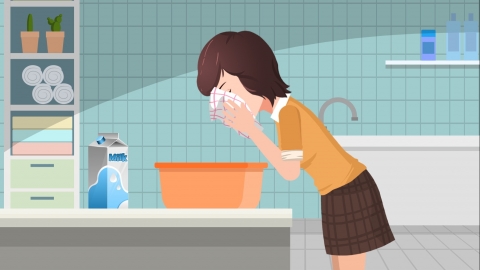What are the risks of washing your face with rice-washing water?
Generally speaking, washing the face with rice-washing water may pose risks such as inadequate cleansing, microbial growth, allergic reactions, disruption of the skin's pH balance, and worsening of skin conditions. A detailed analysis is as follows:

1. Inadequate Cleansing
Rice-washing water contains many impurities and lacks the cleansing ingredients and effectiveness of professional facial cleansers. Using rice-washing water alone may not effectively remove oils, dirt, dust, and dead skin cells from the skin surface. Long-term use can lead to clogged pores and trigger skin problems such as comedones and acne.
2. Microbial Growth
Rice-washing water is rich in nutrients such as starch and protein, which provide an ideal environment for microbial growth. If left standing for a prolonged period, rice-washing water can become a breeding ground for bacteria and mold. Washing the face with such water may allow microbes to adhere to the skin surface, disrupting the skin's microecological balance and increasing the risk of skin infections.
3. Allergic Reactions
Some individuals may be allergic to certain components in rice-washing water, such as rice proteins. After washing the face with rice-washing water, allergic symptoms may occur, such as redness, rashes, blisters, itching, and stinging, which can significantly affect skin health.
4. Skin pH Imbalance
The surface of healthy skin is weakly acidic, with a pH between 4.5 and 6.5. This acidic environment helps maintain the skin's barrier function and inhibits the growth of harmful microorganisms. However, rice-washing water is generally weakly alkaline, and frequent use may alter the skin's pH, disrupting its natural acidic environment, weakening the skin's barrier function, and making it more vulnerable to harmful external substances.
5. Worsening of Existing Skin Conditions
For individuals who already suffer from certain skin conditions, such as eczema, psoriasis, or seborrheic dermatitis, their skin is already in a sensitive and fragile state. The components and instability of rice-washing water may have adverse effects on the skin, delaying recovery and even worsening the condition.
In daily life, it is recommended to choose suitable professional facial cleansers according to your skin type, such as gentle amino acid-based facial cleansers, to ensure effective skin cleansing without compromising the skin's barrier function.





